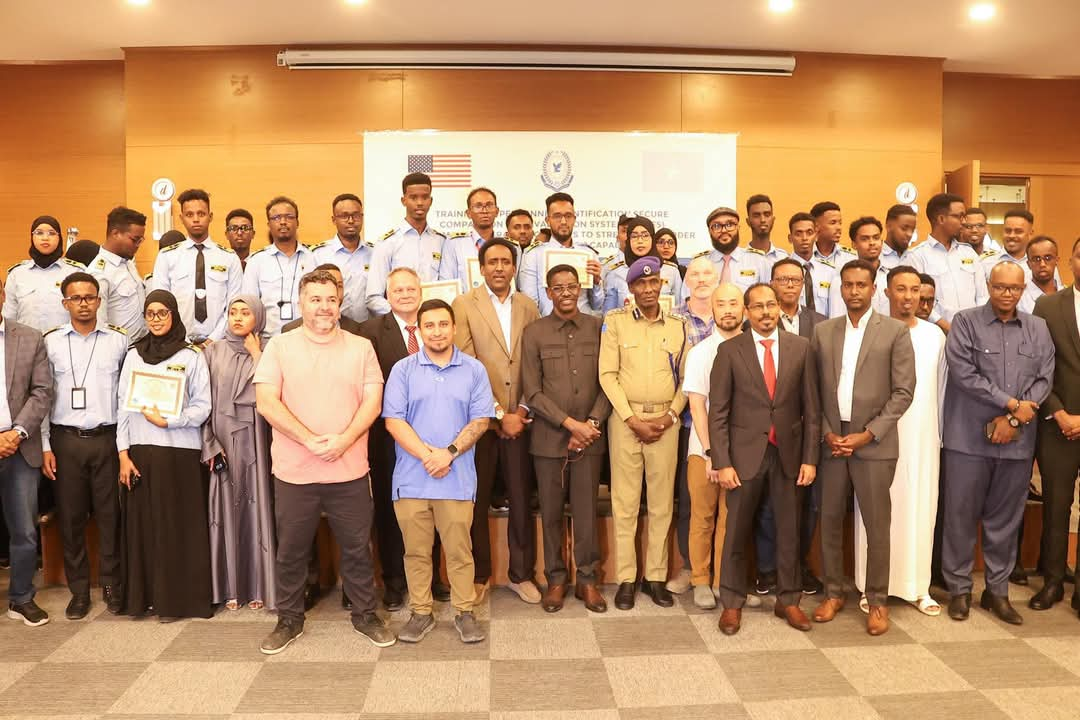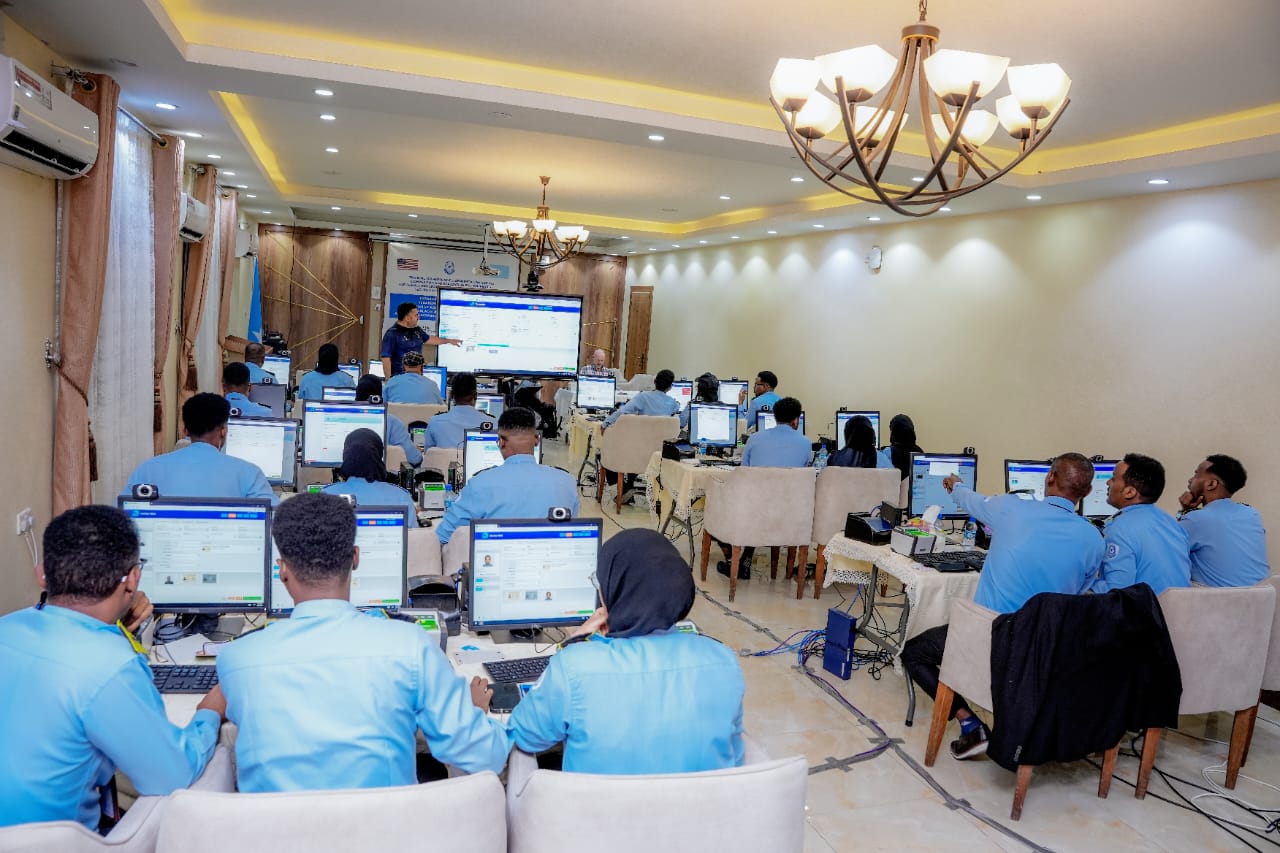
Somalia has officially rolled out a new biometric border security system, backed by the United States, to fight human trafficking, curb illegal migration, and strengthen national and global security.
The launch followed a four-day training in Mogadishu where US experts trained Somali immigration officers on using the Personal Identification Secure Comparison and Evaluation System (PISCES), a US-developed biometric platform used at major entry points.
This system allows Somali authorities to screen travellers in real time against global watchlists, detect identity fraud, and track suspicious movement.
“This is not just about adopting technology — it’s about protecting our people and restoring trust,” said Mustafa Duhulow, Director General of Somalia’s Immigration and Citizenship Agency.
The training was facilitated by the US Embassy in Somalia.
In addition to PISCES, Somalia has introduced a new third-generation e-passport embedded with biometric chips and strong anti-forgery features, meeting international standards.
The upgrade provides Somali citizens with secure identification and limits misuse by criminal networks.
A new digital e-Visa platform is also now live, allowing foreign visitors to apply online. The system aims to cut visa fraud and streamline entry procedures.

The US Embassy in Mogadishu worked closely with Somalia’s immigration agency and American security bodies to ensure successful deployment of these systems.
“These systems save lives, stop crimes, and build trust in institutions,” said a US Embassy official.
This initiative signals a deeper US-Somalia partnership that extends beyond defence to civilian infrastructure.
It is also part of Somalia’s broader plan to digitise public services and strengthen governance.
With its location at the Horn of Africa, Somalia has long battled porous borders exploited by traffickers and terrorists.
The adoption of advanced biometric and digital tools marks a significant shift in border control and security efforts.
Somalia is also expanding cooperation with global bodies such as INTERPOL, with a recent agreement to integrate watchlist data and improve intelligence sharing across borders.











